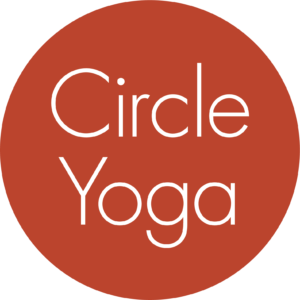March 2012
Dear Friends,
By now you may have heard about the controversy surrounding the founder and leader of the Anusara yoga community. I won’t inventory the allegations here, but the founder is a charismatic man with power over thousands of teachers and practitioners. Enough said. You can read more details here.
I started practicing Anusara yoga sometime around 2001, and finished my Anusara teacher training in 2004. I studied with the founder on several occasions, and found him to be a good teacher – funny, irreverent, and capable of performing great postures. And yet when the accusations against him came out earlier this month, I wasn’t shocked or devastated.
Why? Because he is a person. Just because we establish a yoga organization, minister to a church, do international aid work, or work in an orphanage, doesn’t mean that we are perfect. All of us, regardless of what we do for a living, have the same human tendencies toward greed, anger, and delusion. And if we have a well-loved teacher or mentor, our biggest and most dangerous delusion is that our teacher or leader could never succumb to greed, anger or delusion.
Now I don’t really know why humans struggle with greed, anger, and delusion, I just see from experience that we do. And for me that means that I accept that my beloved teachers are capable of making unskillful choices. It is my responsibility to live with my eyes open to this truth about my teachers and about myself. The first of the Buddha’s Four Reliances, as translated by the Dalai Lama, says, “Do not rely on the person, rely on the teachings.”
What it also means is that organizations are more vulnerable when they are controlled by one human being. It’s a lot harder for us as leaders to make good decisions when we have absolute power. And it’s a lot easier for us as students to think our leader is God-like when they have unbridled power over so many people. That’s why the checks and balances system of democracy is so important. And it’s why the Buddha taught that we all need spiritual friends, sangha, to help us stay on the path. We are like bees that need a beehive. If we are a bee alone, we cannot survive.
As Chögyam Trungpa Rinpoche, Buddhist leader and himself involved in controversy over sexual impropriety, explains:
Your friends in the sangha provide a continual reference point which creates a continual learning process. They act as mirror reflections to remind you or warn you in living situations. That is the kind of companionship that is meant by sangha. We are all in the same boat.
When someone initially creates an organization, most of what is born is the founder’s vision. As more people get involved and the organization grows, when is it time for the founder to step back? When an artist paints a picture, it can be very difficult for him or her to let it go. And it’s the same with an organization. It can be hard for the founder to let go of control. But if he or she doesn’t let go, the organization continues to rest on the back of that one person, with no shared oversight or support.
If we really want them to thrive, as organizations grow we need to share them with the community. Our organizations need to be guided by the sangha, each of us supporting each other’s ability to see clearly and make skillful decisions. If one person stumbles, the organization doesn’t have to collapse and disappoint hundreds, thousands, or even millions of people. Everyone in the organization will be invested in the product or service that is being offered, and everyone allowed to have input into how the organization operates.
Our organization, Circle Yoga, has just taken the pioneering leap from a privately held small corporation to a worker’s cooperative, where decisions about studio operations, finances, and even whether it exists will be made by a board elected by the membership. In addition to worker-members, students who choose to can become student-members and be elected to serve on the studio board. (for more details, see email to students you should have received, or click here.)
In this way, we hope to share the decision-making and income fairly with the entire community, creating a more resilient, versatile and impactful organization. We are calling this Fair Trade and Sustainable Yoga. In addition, we hope to foster a community of equals, living the Buddhist teachings of equanimity and inter-being, as Thich Nhat Hanh says, “To be” is to inter-be. You cannot just be by yourself alone. You have to inter-be with every other thing. This sheet of paper is, because everything else is.”
We hope that as a community of practitioners working together, we will be able to support the highest and best in each of us, and in the teachings and activities that we bring to the yoga and mindfulness community.
